Adagio Dwarf Maiden Grass (Miscanthus Sinensis) – 6-Pack Of 1 Gallon Pots
$139.97 Original price was: $139.97.$95.99Current price is: $95.99.
SKU: D2LSC 0147764555 Category: PERENNIAL PLANTS
- 7 days return and exchange
- 100% Quality Satisfaction
- Shop with Confidence
- No Compromise on Quality

Adagio Dwarf Maiden Grass
Miscanthus sinensis ‘Adagio’
Plant Details
USDA Plant Hardiness Zones: 5a-9b Find Your Zone
Plant Type: Ornamental Grass
Height at Maturity: 3-4′
Width at Maturity: 4-5′
Spacing: 3-4′ apart for hedge; 10′ or more apart for space between plants
Growth Habit / Form: Arching, Clumping, Dense, Mounding
Growth Rate: Moderate to Fast
Flower Color: Buff/Cream
Flower Size: Large curled plumes
Flower Type: Plumes
Flowering Period: Late Summer, Early Fall, Mid-Fall, Late Fall, Early Winter, Mid-Winter
Foliage Color: Green
Fragrant Foliage: No
Sun Needs: Full Sun or Mostly Sun
Water Needs: Average, very low when established
Soil Type: Clay, Loam, Sand, Silt
Soil Drainage: Well Drained
Soil pH: 5.5 – 7.5
Maintenance / Care: Very Low
Resistances: Deer – more info, Disease, Drought, Dry Soil, Heat, Humidity, Insect
Attracts: Visual Attention, Birds
Description
One of the shorter varieties available on the market today, Adagio is a dwarf Miscanthus cultivar that grows to only 3 to 4 feet tall and 4 to 5 feet wide in a gracefully weeping mound. It features extremely narrow silver-gray leaf blades that turn to shades of yellow, orange and red in fall. Attractive, tassel-like reddish inflorescences rise above the foliage in late summer gradually opening to fluffy, creamy white plumes by fall that provide winter interest in the garden.
Landscape & Garden Uses
Growing in a graceful weeping mound 3 to 4 feet tall and 4 to 5 feet wide, Adagio Dwarf Maiden Grass is ideal for use as a specimen, in groupings, or in straight or staggered rows as a border or hedge in sunny landscape borders and home foundation plantings. Excellent in mass plantings on slopes and embankments for erosion control. Combines nicely with dark- or bright-leaved evergreen shrubs, such as Abelia, Distylium, Holly, Junipers, Loropetalum and other sun-loving evergreens. A fine addition to ornamental grass gardens and looks especially nice around bolders and bodies of water.
Spacing: 3 to 4 feet apart for a solid hedge; 10 feet or more apart for space between plants
How To Measure Total Square Feet Of A Planting Area
How Many Plants Needed To Cover A Planting Area?
Note: For our customers who live and garden north of USDA Plant Hardiness Zone 5a, where this Miscanthus variety is not reliably winter hardy, you’ll be happy to know it can be grown in containers that can be brought indoors during winter and placed back outside when temperatures warm up in spring.
Growing Preferences
Miscanthus grasses are easy to grow in a wide range of soils, from sandy to well-drained clay and full to mostly sun (6 hours or more direct sunlight per day). They prefer a moist but well-drained soil of average fertility while establishing themselves, however will tolerate periods of dry soil when established. Constantly soggy or wet soils can be problematic, so make sure the planting site is a well-drained one. Maintenance is minimal requiring only an annual pruning before new growth begins to emerge in late winter or very early spring. At this time simply cut plants back to just above the ground. Save the cut flower stems for dried flower arrangements!
Helpful Articles
Click on a link below to find helpful advice from our experts on how to plant, fertilize, prune and water Miscanthus grasses.
How To Plant Miscanthus Grasses
How To Fertilize & Water Miscanthus Grasses
How To Prune Ornamental Grasses
Plant Long & Prosper!
Meet The Wilson Brothers & Staff
Questions? Contact Us!
My grasses arrived packaged beautifully and absolutely thriving. I waited a couple of weeks to plant them due to the heatwave we had here, and they have done great in our amended clay soil so far. Looking forward to more purchases from y’all in the future. Thanks so much!——————————————————-We are so glad you are pleased and we hope you enjoy them for years to come! Thanks for the great review! 🙂 Beth Steele | WBG
Be the first to review “Adagio Dwarf Maiden Grass (Miscanthus Sinensis) – 6-Pack Of 1 Gallon Pots” Cancel reply
Related products
New
New
New
New
PERENNIAL PLANTS
Blue Arrows Rush (Juncus Inflexus) – 8 Pack Of 1 Gallon Pots
New
New
PERENNIAL PLANTS
Saucy Strawberry Red Ice Plant (Delosperma) – 5 Pack Of Quart Pots
New
PERENNIAL PLANTS
Southern Wood Fern (Thelypteris Kunthii) – 10 Pack Of Quart Pots
New
PERENNIAL PLANTS


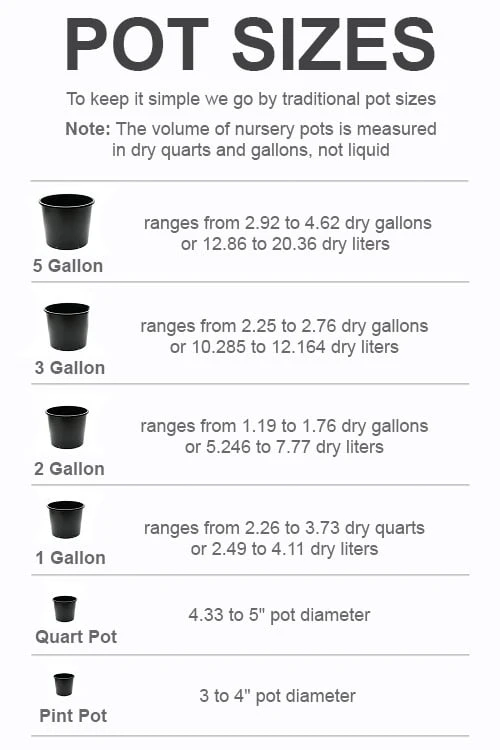
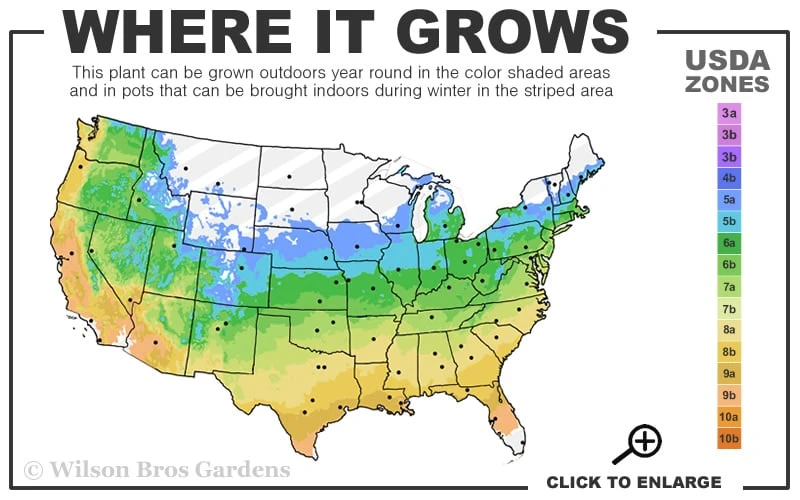



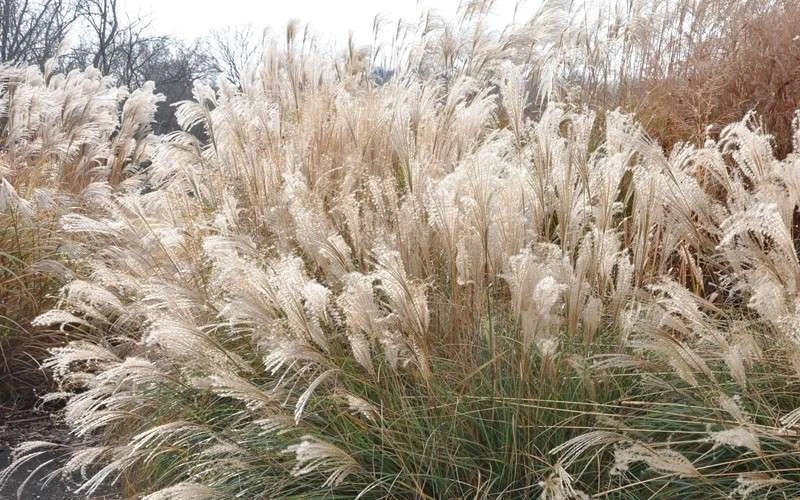
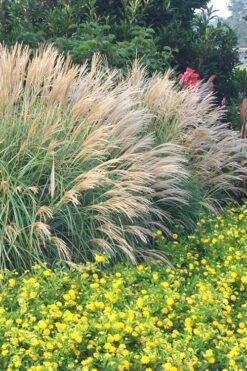
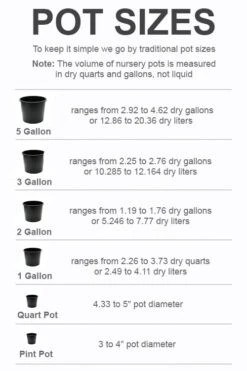

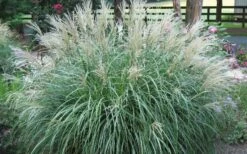


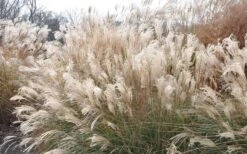
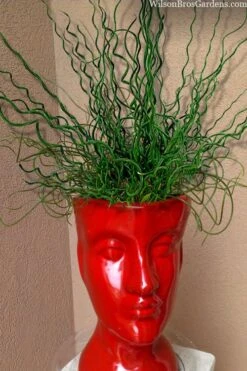
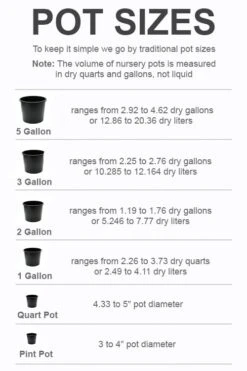

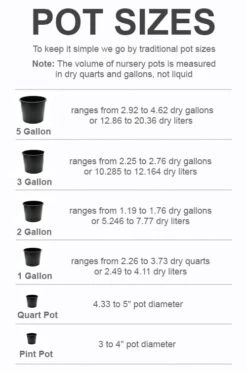





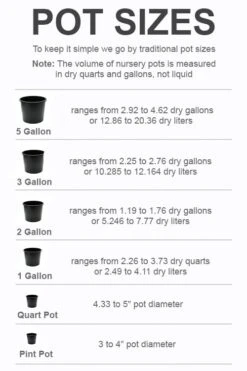


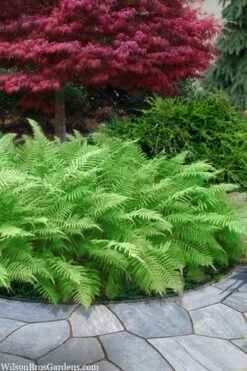



Reviews
There are no reviews yet.